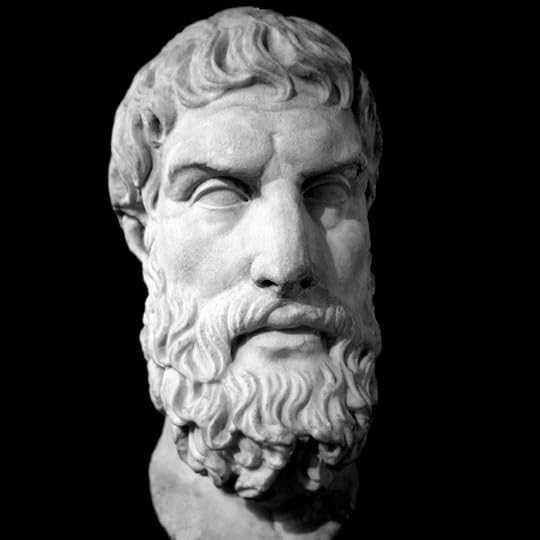Hadot’s “Active” Stoic Exercises by Anitra Russell - Modern Stoicism
Curated from: modernstoicism.com
11
Explore the World's Best Ideas
Join today and uncover 100+ curated journeys from 50+ topics. Unlock access to our mobile app with extensive features.
What Are The Stoic Exercises
The Stoics prescribed the use of “exercises” to strengthen and internalize our intellectual understanding of Stoic precepts, so that we are prepared to meet a range of misfortunes, whether minor irritations or serious adversities, with equanimity.
This helps us to be more present in the world and to be better prepared to support those we love.
104
659 reads
Hadot's "Active" Three Stoic Exercises
The three exercises are-
- Self Mastery
- Accomplishment of duties
- Indifference to indifferent things
Hadot describes these as "practical exercises, intended to create habits." These exercises correspond perfectly to Epictetus’ three areas of Stoic practice, known in Stoic commentary as the “three disciplines.”
108
486 reads
1. Self Mastery (enkrateia)
To acheive self mastery we should desire nothing but moral virtue. On the other side of the coin, moral evil is all we should seek to avoid. Anything beyond these two spheres is not up to us, and to worry about it is therefore a waste of our time.
We have grown to believe that our desires are a part of us, an extension of our identity, hence we are dissapointed when things don't turn out our way. You should be aware of your power to detach yourself from your desires by taking up a distance from them.
It is only by accepting that we can stand alone, self-sufficient, wanting nothing but to be good, that we free ourselves of dependence on things outside of us, which we believe we “need” to be happy.
122
316 reads
"When you receive an impression of some pleasure, take care not to get carried away by it, as with impressions in general; but rather, make it wait for you, and allow yourself some slight delay."
EPICTETUS
111
395 reads
2. Accomplishment of duties (kathekonta)
This exercise depends on the people. It is key to recall the distinction between what depends on us and what does not, and to recognize that as we carry out our duties to others, what is up to us is our moral intention as we do it. The result of our efforts – how they are received, whether our relationship with the other person improves, whether their expectations are even higher in the future – this is not up to us.
We should live in accordance with our nature and play the role which is assigned to us- citizen, friend, parent.
Rising above one's desire can help since if we are too self-absorbed and focused on getting what we want, it impedes ethical growth.
109
293 reads
“Appropriate actions are measured on the whole by our social relationships. . . . ‘My brother is wronging me.’ Very well, maintain the relation that you have towards him; don’t look to what he is doing, but to what you must do if you are to keep your choice in harmony with nature.”
EPICTETUS
103
280 reads
3. Indifference to Indifferent Things
This exercise is the one that relies on our capacity for rationality, and is aligned with the Stoic topos of logic. Hadot describes logic as “the mastery of inner discourse.” By keeping a close watch on that inner discourse, we can see whether our logic is erroneous and thus conducive to emotional disturbances. Once you re-orient yourself, you realize the universe is vast and contains an infinite number of moving parts among which we should “make no difference”.
This helps us to get an expanded view of the environment in which one lives and also encourages a refined focus on the one thing that is not indifferent: our moral intention.
This “engages human beings to modify themselves and their attitude with regard to the world.”
108
264 reads
"With regard to everything that happens to you, remember to look inside yourself and see what capacity you have to enable you to deal with it. . . . And if you get into the habit of following this course, you won’t get swept away by your impressions."
EPICTETUS
106
273 reads
Conclusion
It is a pitfall of Stoicism that in attempting to understand the elaborate taxonomy of topoi, disciplines, cardinal virtues, and so on, we might forget to put philosophy into practice.
It is by putting Stoicism into practice via philosophical exercises, however, that we don't lose sight of the transformative, ethical purpose of Stoicism: to lead virtuous lives and live up to our potential as rational humans and citizens of the world.
98
294 reads
IDEAS CURATED BY
Purvankit khadatkar's ideas are part of this journey:
Learn more about philosophy with this collection
How to create a cosy and comfortable home environment
How to cultivate a sense of gratitude and contentment
The benefits of slowing down and enjoying simple pleasures
Related collections
Similar ideas
11 ideas
Why Stoicism matters
en.wikipedia.org
10 ideas
What is Stoicism? A Definition & 10 Stoic Key Principles
njlifehacks.com
Read & Learn
20x Faster
without
deepstash
with
deepstash
with
deepstash
Personalized microlearning
—
100+ Learning Journeys
—
Access to 200,000+ ideas
—
Access to the mobile app
—
Unlimited idea saving
—
—
Unlimited history
—
—
Unlimited listening to ideas
—
—
Downloading & offline access
—
—
Supercharge your mind with one idea per day
Enter your email and spend 1 minute every day to learn something new.
I agree to receive email updates

